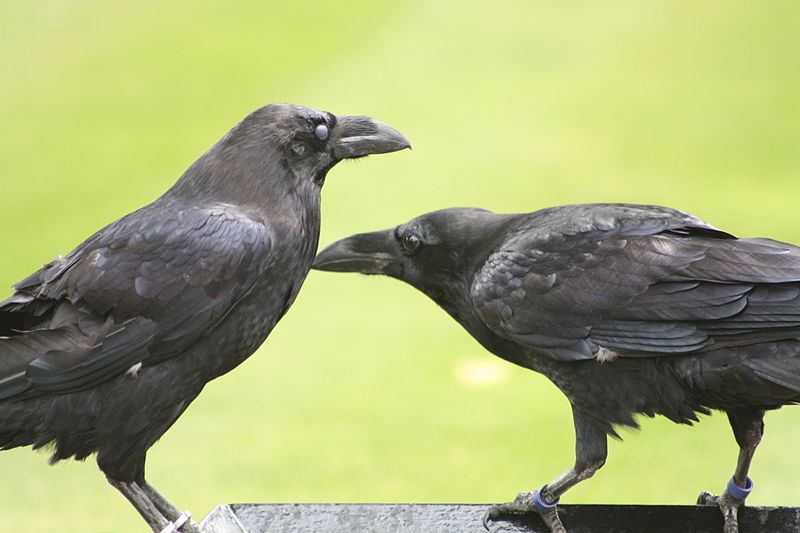Science News
Kickoff to Corvid Week: Raven Empathy
July 14, 2014
by Molly Michelson

There’s shark week, penguin awareness day and #cephalopodweek—noble efforts all—but here at Science Today, one of our biggest loves is corvids. Intelligent ravens and crafty crows are our idea of animals to celebrate. So enjoy Corvid Week, beginning today, where we’ll rerun our stories about the brilliant birds.
Today’s post originally ran on May 19, 2010:
Empathy, like many other traits, was long thought to be a human-specific feature. But recent research has revealed that animals from chimpanzees to dogs to rats can feel empathy.
Frans de Waal, PhD, one of the leading researchers in animal behavior and the author of The Age of Empathy: Nature's Lessons for a Kinder Society, has said, "The possibility that empathy resides in parts of the brain so ancient that we share them with rats should give pause to anyone comparing politicians with those poor, underestimated creatures."
Last week, two Austrian researchers found evidence of empathetic behavior in another creature, ravens.
Ravens are part of the corvid family, which includes crows and rooks, long believed to be very intelligent birds. (See our Science in Action video on crow tool-use here.)
Published in PLoS ONE, “This study investigates the post-conflict behavior of ravens, applying the predictive framework for the function of bystander affiliation for the first time in a non-ape species.”
The researchers observed ravens after a fight and found that the birds that weren’t involved in the fight (the bystanders) would console the victim of the aggression, especially if the bystander had a relationship with the victim.
Orlaith Fraser, PhD, one of the authors of the study, quoted in Wired, explains, “It’s not a good thing for your partner to be distressed.” Suggesting a possible evolutionary advantage of why corvids may express empathy for one another.
In addition, the scientists also found that after the conflict, the victim would cozy-up with the bystanders, in hopes of avoiding continued aggression.
“These results stress the importance of relationship quality in determining the occurrence and function of post-conflict interactions, and show that ravens may be sensitive to the emotions of others,” the study concludes.
Dr. Fraser adds, “It’s interesting to see these behaviors in animals other than chimpanzees. It seems to be more ingrained in evolutionary history.”
And perhaps, this study of ravens will “also play an important role in the empathy debate.”
Image: Cj005257/Wikipedia